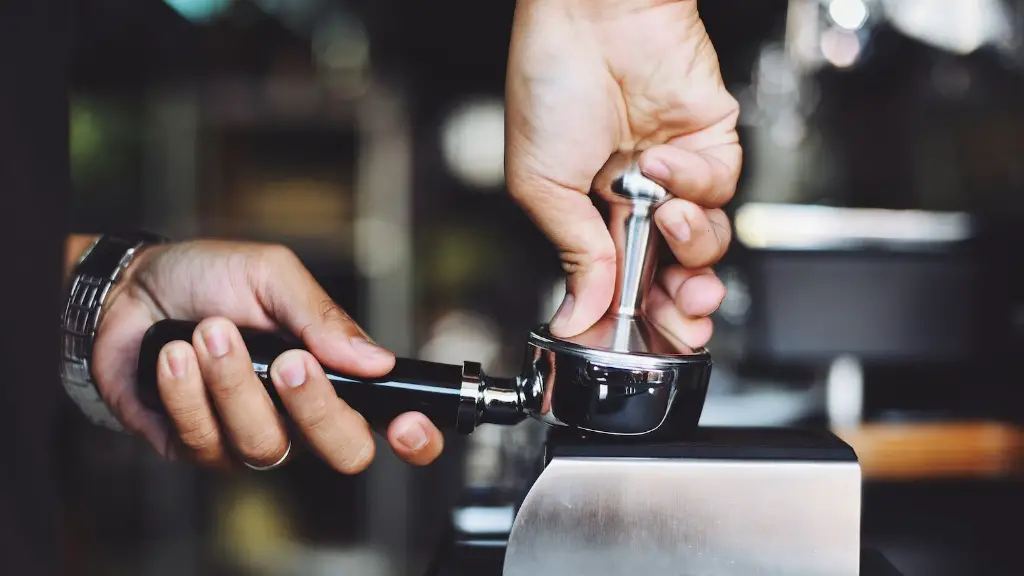We’ve all heard of the caffeine-fuelled weight loss strategies and the debate on whether or not such tactics actually work. Coffee and weight loss go hand-in-hand, with some showing significant improvements in weight loss and junk food calorie reduction, and yet, some experts claim there isn’t any evidence to back up these claims. This article will explore the correlations between the two, the evidence that exists, and best practices to exercise when drinking coffee.
It’s true that drinking coffee can aid in weight loss, however it is in correlation with lifestyle changes, and not solely dependent on coffee alone. Studies on humans and animals alike have shown that coffee stimulates the nervous system, and can increase the production of metabolic enhancing hormones, such as adrenaline and norepinephrine. This suggests that coffee has thermogenic properties, and by reserving energy, can reduce weight while optimizing calorie burning.
This brings us to recognizing the importance of moderation; over indulgence of coffee cannot serve as a maximized method for weight loss. Too much coffee can lead to a “burnt out” feeling, restlessness and a decrease in energy production. On the other hand, moderate coffee intake, combined with an appropriate diet and exercise plan can make for an effective weight loss strategy.
Caffeine has been determined to be the most significant weight loss ingredient within coffee. It is a stimulant to the central nervous system therefore it pumps adrenaline, raises heart rate and blood pressure, and increases metabolic rate. It has even been determined that its restriction can lead to increased hunger and cravings of food. Yet, it is important to note that coffee itself can be calorie-dense, particularly if featuring heavy sweeteners or cream.
Moreover, studies have shown that coffee can ingeniously reduce your intake of junk food. A study composed with 103 participants determined that those who drank coffee ate significantly less packaged snacks, sugar rich desserts and sugars than those who didn’t drink coffee. Thus, coffee can serve as a way to deter yourself from unhealthy eating while having a positive effect on physical activity.
In conclusion, coffee is a great way to jumpstart your metabolism, however, its physical and mental effects should be monitored for the best results. Moderation and the correct supplementation of coffee in a weight loss regimen yield the most significant weight loss success stories.
Fiber and Antioxidants
On top of coffee acting as a metabolic activator, coffee is also loaded with antioxidants, as well as dietary fiber that can both provide help in shedding off excess weight. Fibers colsely align with coffee’s thermogenic capabilities; soluble fibers take longer to digest and therefore can extend the feeling of satiety post meal. On the other hand, antioxidants directly impact the oxidation process and are absorbed humanely to decrease free radical. Upon oxidation, free radicals cause the damage of the cell which in return leads to the collateral damage of cellular equipment such as DNA, and protein.
It is found that the majority of antioxidants in coffee are polyphenols, and are primarily responsible for the flavonoids found in the beverage. Recent research developements with regards to polyphenols, determined that they play a substantial role in increasing metabolic activity.
Furthermore, studies conducted on various groups who combined a high-fiber diet with the supplement of coffee discovered the presence of digestive enzymes stimulated within their bodies in the form of maltase and amylase. This increased production of enzymes within their bodies resulted in improved digestiion and absorption, amplifying the amount of feelings of satiety.
All in all, it can be seen that fibers and antioxidants play a exceedingly substantial role in coupuling one’s weight loss regimen with coffee.
Wellbeing Trade Offs
It is important to develop a plan of attack with weight loss, and to understand that it’s a lengthy process that requires patience and dedication. Eating patterns can be changed with the supplement of coffee, but it is important to recognize whether or not your body is ripe for the welcomed result of excessive energy control.
Although this method may sound enticing and futuristic, it is important to note that excessive stimulation on a neural level can lead to deficiencies in other areas. Mental health is of the utmost priority, and there has yet to be a conclusive answer with regards to the motion that coffee can actually create a mental instability if over-consumed. Thus, as mentioned above, moderation should be exercised.
In terms of physical reactions, one study concluded that those who consumed excessive amounts of caffeine were more likely to acquire physical signs of addiction. Some of which included headaches, cravings and mental confusion if one were to omit themselves from the thought process of consuming coffee the next morning.
Therefore, it is important to be cognizant of the fact that with great power comes greater responsibility, and that caffeine can actually impede a healthier lifestyle due to interfering with one’s sleep. To maximize a healthy lifestyle, couching caffeine usage should be part of one’s weight loss regimen.
Understanding Genetiscs
It is important to understand that genetics can dictate how one’s body can metabolize coffee. Currently, studies are being conducted to identify the peaks and valleys of thermogenic genes and how coffee impacts one’s genetic body composition. It is believed that the impact coffee has on the body is subjective to one’s genetic makeup.
A study composed on 1000 adults suggested that those with larger genetic variations in coffees response were more likely to generate a more substantial metabolic reaction due to the conumesion of coffee. Knowing this information, one should familiarize themselves with their genetic code to understand how one’s body responds to coffee, and whether one should supplement it into their weight loss regimen.
Moreover, genetics also affect absorption. All factors into consideration, caffeine can stay in your system up to 8 hours, depending on how one approaches because the body processes it differently. Those with a higher genetic variation of enzymes such as CYP1A2 can process it faster than those who do not have one. Therefore, one should understand how their body is specifically wired when using intensive stimulants such as coffee.
Health Benefits of Coffee
The targeted benefits of this method of weight loss should not take away from the advantages that coffee can have from overall wellbeing. Studies have determined heightened levels of mental alertness when consuming this beverage, and consistent drinkers have been suggested to have decreased risks of cardiovascular and renal diseases. As an overall beverage for health, it can also protect against physical ailments such as preventing mouth cancer and reducing muscular and neurological diseases such as Parkinson’s and Alzheimer’s.
Moreover, coffee can offer a wide range of vitamins and minerals. It is especially abundant in magnesium and manganese, two increidbly vital nutrients that are not available in your everyday diet. By drinking a moderate amount of coffee, one can provide themselves the necessary vitamins and minerals that encompass a balanced, health lifestyle.
All in all, coffee consumption offers a plethora of benefits outside of weight loss. This article should not detract from the wide range of possibilities this beverage can offer. Rather, its aim is to inform about proper and safe consumption for those looking for weight loss.
Types of Coffee Bean
When initially looking into coupling coffee with weight loss, it is important to recognize the differences between various beans, as well as their preparation process. A single coffee bean contains between 15 to 30 mg of caffeine, signifying its significance with regards to weight loss. Furthermore, certain coffee beans contain more or less caffeine than are not in comparison to regular coffee beans.
For example, Robusta coffee beans are said to have more caffeine than its alternative, Arabica beans. It is suggested that Robusta beans should be ingested as its double the amount of caffeine as conventional coffee beans, thus having an substantially larger impact on the thermo process.
Despite this increase in power, it should be noted that Arabica beans are more flavorfully compatible, with a seemingly more pleasant taste profile. Studies have concluded that the two sets of beans have varying levels of antioxidant compounds, with Robusta beans having more chlorogenic acid than other beans. The acid helps burn fat, benefiting weight loss.
In regards to the preparation process of coffee, it is found that traditional Italian coffee is said to have the most clarified taste and caffeine profile. Italian coffee is typically brewed under high heat for extended periods, leading for the extraction of a more substantial amount of caffeine than other variations.
Therefore, one should never overlook the process of brewing coffee, as maximizing the extraction process can be directly related to one’s success with regards to coupling it with weight loss.





